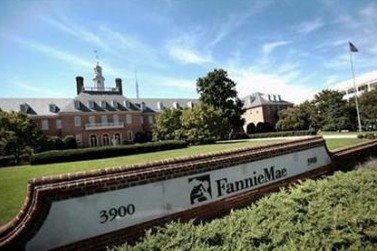Mortgage lenders to pump $200b into markets
(Agencies)
Updated: 2008-03-20 09:58
Updated: 2008-03-20 09:58
WASHINGTON -- Two US home financing heavyweights won government approval on Wednesday to pump $200 billion more into troubled US mortgage markets, the latest step to stabilize credit markets and avert a deep recession.
Despite intensive efforts to battle rising home foreclosures and calm shaky markets by the Treasury Department and the Fed, which has pledged $400 billion to free up credit, Democratic lawmakers continue to press for bolder action.
|
|
"All hands are on deck to try and prevent this US situation from becoming a dire crisis," said David Watt, a currency strategist with RBC Capital Markets in Toronto. "They're doing everything they can, making policy on the fly."
Still, markets were not calmed by the latest move by the regulator that oversees Fannie Mae and Freddie Mac to immediately loosen their capital requirements and give them a bigger role in buying up mortgages.
The blue chip Dow Jones industrial average lost almost three-quarters of the 420-point gain notched a day earlier, closing down 293 points, in part on worry brokerage Merrill Lynch & Co may need to write down more bad assets.
More relief, however, is in the works. A separate regulator appeared near a decision to allow the Federal Home Loan Bank System to double some mortgage holdings to around $300 billion -- which would be another big shot of market liquidity.
Sources familiar with the proposal said a vote on the measure was likely this week.
PUSHING FOR MORE
There were no signs, however, that Democratic lawmakers were about to let up in a push to have the government step in to play a larger role.
Rep. Barney Frank, chairman of the powerful US House of Representatives' Financial Services Committee, said the Bush administration was warming to his plan to use the Federal Housing Administration to insure up to $300 billion of shaky home loans for lenders willing to erase some of the debt.
The Treasury, however, said it had "no interest" in the proposal, although it was willing to listen to any new ideas.
Fannie Mae and Freddie Mac's regulator, the Office of Federal Housing Enterprise Oversight, said its decision to relax capital rules toughened in the wake of accounting scandals in 2003 and 2004 would allow the two companies to buy or guarantee $2 trillion worth of mortgages this year.
The decision reduces to 20 percent from 30 percent the additional amount of capital they must keep on hand against potential losses, giving them $200 billion in buying power. OFHEO said it may lower the capital requirements further.
Efforts to ease financial market stress helped bring down mortgage rates early this year, but they have risen in recent weeks as investors dumped souring loans to meet margin requirements, undercutting the Fed's attempts to spur the economy by lowering overnight interest rates.
Shares of Fannie Mae and Freddie Mac, which rose sharply on Tuesday in anticipation of the announcement, blasted higher for a second day on Wednesday. Fannie Mae stock rose $2.49 to $30.71 and Freddie Mac shot up $3.88 to $29.90.
The global nature of the credit crisis was underlined as the Bank of England stepped in to dampen rumors that HBOS, Britain's biggest home lender, might be in trouble. "No meetings have taken place, or been scheduled, to discuss problems with any institution," a BoE spokesman said, taking the rare step to comment on a rumor.
DRASTIC TIMES, DRASTIC MEASURES
In a joint statement with OFHEO, Fannie Mae and Freddie Mac promised to raise "significant capital" in return for easing in their reserve requirements, but the two companies gave no indication how and when they would do so.
The Treasury Department has been pushing financial firms to face losses and quickly raise new capital. That is vital for a return to normal lending and business activity and to avert a full-blown financial meltdown.
Treasury Secretary Henry Paulson, a pragmatic veteran of Wall Street, has so far hewed to the Bush administration's line that it will not countenance a taxpayer "bailout" for people who took excessive risks.
But that argument suffered over the weekend when Treasury helped broker a proposed deal for a takeover of troubled investment bank Bear Stearns.
President George W. Bush said on Tuesday the White House was monitoring financial markets and, if further actions were needed to ease mortgage woes, it would be done "in a way that does not damage the long-term health of our economy."
|
||
|
||
|
|
|
|
